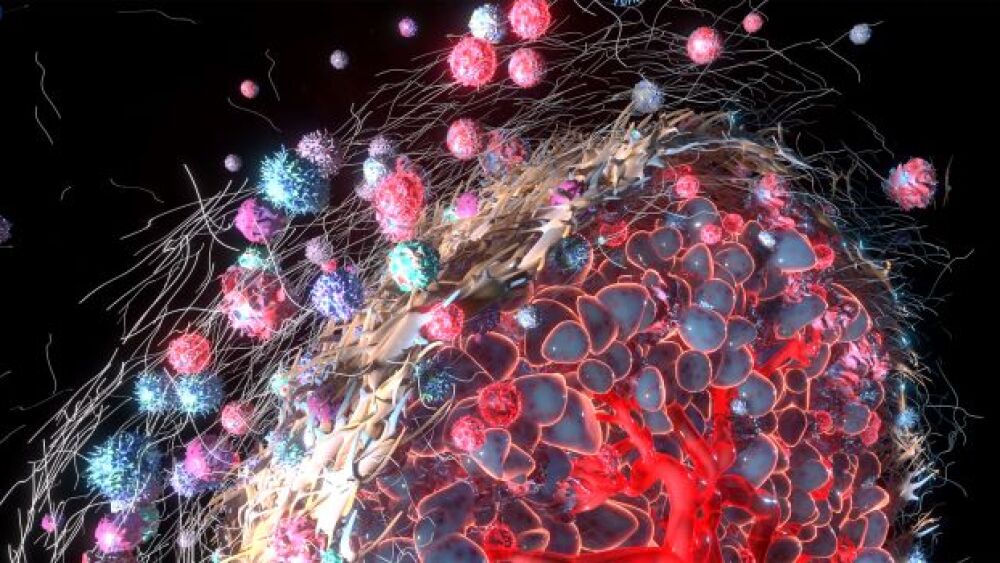The AACR annual meeting concluded on April 13, showcasing hundreds of preclinical to late-stage information from ongoing studies on treatment candidates.
The American Association for Cancer Research (AACR) annual meeting concluded on April 13, showcasing hundreds of preclinical to late-stage information from ongoing studies on treatment candidates. Here are some of the highlights from the event.
Mustang Bio’s Announces Glioblastoma Study
Mustang Bio announced a plan to begin a Phase I clinical study on the effect of combining CAR T cells and oncolytic virus (called MB-109) to treat recurrent glioblastoma (rGBM). The program is based on results from two Phase I trials on MB-108 (C134 oncolytic virus) and MB-101 (City of Hope’s IL13Rα2‐targeted CAR T cell therapy).
Preclinical data shows that the MB-109 combination therapy could be safely given at low doses and can lead to tumor shrinkage. It also did not cause any adverse reactions. The upcoming trial will look into the safety, feasibility, tolerability and preliminary efficacy of MB-109 in patients diagnosed with IL13Rα2-positive relapsed or refractory GBM and anaplastic astrocytoma.
“The MB-101 and MB-108 programs continue to enroll patients in Phase 1 clinical trials at City of Hope and UAB, respectively. Given the preclinical study outcomes, future efforts will include the combination therapy MB-109, for which we plan to file an Investigational New Drug application later this year,” said Manuel Litchman, M.D., the president and chief executive officer of Mustang, in a statement.
ChemoCentryx Showcases Potent Results in Solid Tumors
Data from ChemoCentryx‘s ongoing Phase I trial of CCX559 to treat solid tumors demonstrated its capacity as a potent PD-L1 inhibitor that blocks binding to CD80 and PD-1. The company began its first-in-human Phase I dose escalation study in 2021 to assess the safety, tolerability, pharmacokinetic and pharmacodynamic effect of CCX559 in patients with different types of advanced cancer. Initial data from the first cycle found that it is immunomodulatory and that its PD activity is in line with currently approved antibody inhibitors.
The company plans to launch a Phase IB/II clinical study on CCX559 by the second half of 2022 in light of these positive findings.
Allogene Confirms CD70 as an Important Target
Allogene Therapeutics presented new data from its ongoing Phase I trial of ALLO-316, an AlloCAR T therapy that aims to treat renal cell carcinoma by targeting CD70. Researchers found that CAR T cells that target CD70 can mask CD70’s receptors and protect against fratricide. High functioning CD70 allogeneic CAR T cells gene-edited with TALEN can also be produced at a large scale.
“Coupled with previously published preclinical data on ALLO-316 in a variety of tumors, these findings reinforce our belief that CD70 is an important target across a broad spectrum of cancers,” noted Rafael Amado, M.D., executive vice president of research and development and chief medical officer at Allogene, in a press release.
ALLO-316 has a Fast Track Designation.
Pathios Reports Anti-Tumor Activity Of GPR65 Inhibitor
Preclinical results from Pathios Therapeutics’ study on PTT-3213, its orally bioavailable GPR65 inhibitor, demonstrate GPR65’s key role as an innate immune checkpoint in the activity of human tumors. Researchers observed that inhibiting GPR65, a pH-sensing G protein-coupled receptor, with PTT-3213 led to a significant reduction in tumor growth in mouse models with colon cancer.
“We have now assembled a robust collection of data on the associations between the human genetics of GPR65 and cancer outcomes, including ex vivo studies in human cells. Additionally, we have now shown that weekly dosing of a small molecule GPR65 inhibitor is able to provide equivalent efficacy to anti-PD-1. We look forward to continuing research into this novel immuno-oncology target as we build on this data and complete further candidate nomination studies through 2022,” noted Dr. Stuart Hughes, Ph.D., the CEO of Pathios, during his presentation.
Hookipa Shares Positive Data On Arenaviral Immunotherapy
Hookipa announced positive preclinical data on its arenaviral platform’s ability to address difficult-to-treat cancers. Its HB-200 clinical program biomarker data showed that combining 4-1BB agonists with arenaviral immunotherapy fared much better for tumor control compared to simply applying arenaviral immunotherapy alone. The combination resulted in 30% complete tumor rejection in mouse models. Tumor control and cure rates reached as high as 50% when the duo was used.
With these findings, Hookipa plans to begin a clinical trial of its HB-300 candidate for prostate cancer and will submit an Investigational New Drug application by the third quarter of 2022.
“Our HB-200 clinical program biomarker data have confirmed our preclinical findings in head and neck cancers, so we’re encouraged by the preclinical findings presented at AACR as further evidence of the potential of our novel arenaviral platform in various cancers, either alone or together with other modalities, including as a potential backbone for combination therapy,” commented Joern Aldag, CEO of Hookipa, in a statement.





